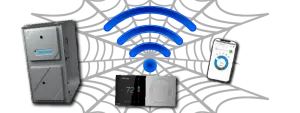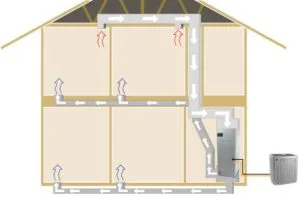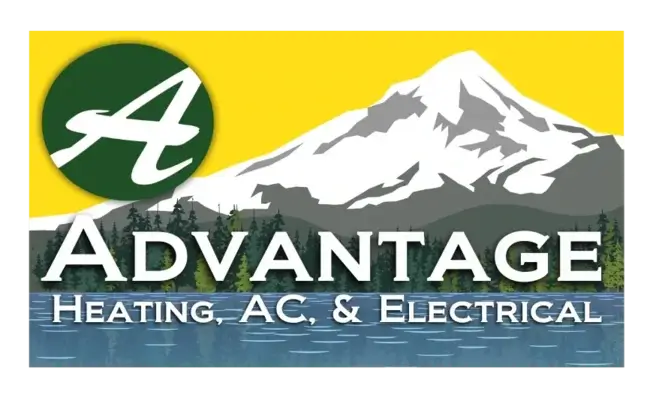What are Smart HVAC Systems?
Have you noticed how fast technology changes? Our stuff gets better, faster, stronger, and smarter. The smart phone replaced the flip-phone in a matter of years. It’s near impossible to find a TV that doesn’t have an app center. You can even get Bluetooth connected lightbulbs now. HVAC equipment is going through the same transformation. Now, individuals who enjoy having a smart home can upgrade to a Smart HVAC System.
In this post, we’ll explain what Smart HVAC Systems are, what problems they can solve, and what benefits they offer. We hope you will know if one is right for you by the end.
What Is It?
A smart system is a set of equipment that can detect changes in outdoor temperature, indoor temperature, and humidity, then calculates how much energy is required to create the desired environment in your home. Each piece of equipment in the system communicates with each other to deliver air at the desired temperature evenly throughout the home.
Another system you can add to make your Smart HVAC even smarter is Zoning. Note that not all smart systems come with zoning, but zoning can add additional benefits. The video gives a surface level look at what some of those benefits are.

These systems don’t just make your home life more comfortable and convenient, but they can also have real benefits for your savings and the environment. Of course, like with any big purchase, there are pros and cons. We’ll get into all that in the next few sections.
What Makes Smart HVAC Smart?
HVAC (Heating, Ventilation, and Air Conditioning) systems are the systems that manage the temperature and quality of air in our homes. To break it down, it’s the furnace, air conditioner, ductwork, and thermostat. It’s one of the most important tools for keeping our homes comfortable. So how do you make this system smarter?
You Give it a Brain
Not an actual brain, but some really sophisticated control panels located directly in the equipment. What makes these systems so smart are the control boards and sensors installed in the individual pieces of equipment. They can take in information, process it through an algorithm, and then communicate with the other equipment in the system. Essentially, they can think about and react to changes in the weather and in your home without you having to change anything.
What Makes Smart HVAC Different from a Traditional System?
Now that we know what makes a smart system smart, let’s talk about how that differs from a traditional system.
Intelligent Control Systems
In the previous section, we mentioned that smart systems have control panels in the individual pieces of equipment. Compare that to a traditional system that only has one control panel in the thermostat.
Like we said, the smart system reacts to changes outside and inside the house. A traditional system is only going to react to changes in the same room as the thermostat.
You Give it a Brain
Traditional HVAC systems have two settings: off and on. When the thermostat tells the furnace or air conditioner to turn on, the system will blast your home with air until the thermostat detects the room being at the right temperature and then turns off. The ambient temperature will affect the temperature in your home and cause it to change until the thermostat tells your HVAC system to turn on again.
Smart systems have a scale of speeds they can operate at. When they detect a change in temperature, they will account for the ambient temperature and turn on with enough power to adjust the temperature inside your home. Then they can slow down to maintain that temperature without needing to turn off and on later. This results in Smart HVAC systems having much longer run cycles.
Long run cycles are great for your energy bill and the longevity of your system. Your HVAC system uses the most energy when it initially turns on, and that’s when the equipment experiences the most stress. By running for one long cycle instead of several short cycles, your HVAC system will use less energy or natural gas, and will put less strain on its parts. This translates into savings on your utilities and a reduced chance of equipment failure.
You Give it a Brain
Much like other smart technologies. Smart HVAC systems have plenty of tools that make them easy and convenient to work with.
Some of these technologies include:
- Wi-Fi Connectivity
- Mobile App Controls
- Geofencing (It knows when you’re not home)
- Voice Activation
- Integration With Your Smart Home System
- Zoning and More Sophisticated Programing

These tools allow you to have more immediate control over your HVAC system. If you’re a frequent vacationer, busy and always on the move, or even if you just don’t like getting up from the couch, you’ll have full control of your HVAC system no matter where you are.
Smart HVAC Can Save You Money
While the convenience of a smart system is great for many people, it’s not the only benefit that a smart system can offer.
Higher Efficiency
Smart systems are much more efficient than a traditional system because of their ability to operate at slower speeds for longer cycles.
An HVAC system uses the most power when it first turns on. This means that a traditional system that turns on at full power more frequently will use more power. The smart HVAC system that maintains temperature by running for a longer cycle with less power uses less energy.

Your energy and gas bill will reflect the differences in efficiency. A smart system should lead to immediate savings regarding natural gas, electricity, or whatever its primary fuel source should be.
No Unnecessary Running
A fear that almost everyone experiences in life is leaving home and feeling like you forgot something. This can be our phone, house keys, or accidentally leaving the oven on. If you accidentally leave your furnace or AC on, you could waste money by heating or cooling an empty house.
With a smart system, you can check your HVAC system and control it from anywhere by using a mobile app. If you’re taking a long trip, you can turn off your furnace on the way to the airport. You can turn everything back on when your return flight lands, so that your home is comfortable before you even step your foot inside the door.
Alternatively, if your system has geofencing enabled, your HVAC system will notice when your phone leaves your home and will power down.
Either way, you’re no longer paying to heat or cool a home that you’re not in.
Smart HVAC Can Make Your Home More Comfortable
A smart system can heat or cool your home more evenly because it works at a slower speed for a longer cycle. The traditional system will turn on and blow air through your ducts at full force before the thermostat tells it to turn off.
However, the thermostat is only reading the temperature in one room. This is a problem for traditional systems that run for a short period. That means that if your system were to blow too much or not enough air into a different room, the thermostat would not know. Their cycles are too short for the air to spread through the rest of your home before they turn off and on again. This can lead to hot or cold spots that make other rooms uncomfortable.
Smart systems take their time to bring your home to the correct temperature. The furnace or air conditioner will blow air into your home at slower rate. This means other rooms will experience slow and consistent airflow over a longer period of time, resulting in more even temperatures.
Zoning
If you have a smart system with zoning, you will have precise control over the different sections of your home and can bring each zone to the desired temperature independently.
Even if you do not have zoning set up, the smart system will heat your home slower and will maintain temperature over a longer period. That means that the air in your home will have time to spread throughout each room and make the temperature more even.

Make Your Life Easier with Smart HVAC
One reason people love their smart phones and other smart technology is how convenient they are. Smart HVAC, much like a smart phone, is connected to all the tools we use to control our home.
We already mentioned the ability to control your system through a mobile app and geofencing. However, you could also connect your Smart HVAC to your Alexa, Google Home, or Nest smart home depending on what thermostat you use. Make sure to check with your HVAC sales professional about what smart home devices your smart system is compatible with.
For example, the Daikin One will work with Alexa and Google Home but not Nest.
So, if you’re frequently out of the home and want to tell your system to turn back on just before you get back, or if you just don’t want to get up from the couch, you can control your home’s heating and cooling from anywhere.
Being connected also makes repairs and maintenance easy. You have the option to sign up for Remote Response. If you have an HVAC problem, a professional technician can remotely check your system and diagnose the issue before even seeing your home. The technician will be able to check your system’s history to see what went wrong before they load the correct tools into their truck. Sometimes, they can even fix the problem through the remote connection, meaning no house call is needed.
A bonus tip here: that mobile app we keep on talking about also has the added benefit of being discreet. If you get too warm in bed, but don’t want to wake your partner, just turn on the AC from your phone.
Final Thoughts: Is Smart HVAC Right for you?
Smart HVAC is not the right fit for everyone. It is more costly than a traditional system, and there are some alternatives that can achieve similar efficiency if that is all you care about.
However, if you want efficiency, convenience, and control and are planning on settling into your current home, then a smart HVAC system could bring your home’s comfort to the next level.
Long Term Investment
Your smart system is an investment that can earn back the cost to install it. It will provide immediate savings on your monthly utilities’ bills. This can be as much as 20%-30% based on how much you use your system. In some circumstances, this number can be lower, but this is a typical range in our experience.
The long run cycles also mean less wear and tear on your HVAC equipment since they experience the shock of turning on and off less frequently. Technicians can also render repairs easily thanks to their ability to remotely access the smart system. Altogether, that means you will spend less money on repairs and have to go through less time without heating or cooling when something goes wrong.
If the potential savings, increased efficiency, and the convenience of controlling your HVAC system anywhere sounds good to you, contact your local HVAC professionals and ask them about Smart HVAC.
Who Are Advantage Heating and Air Conditioning?
We are your local HVAC Experts out of Salem, Oregon. We hope that this post gave you the information you need to make a confident decision when purchasing a Smart HVAC system. If you have other questions about HVAC systems, check out our other blogs. To learn more about who we are and how we can help you, visit our website and follow us on social media – we’re here when you need us!







